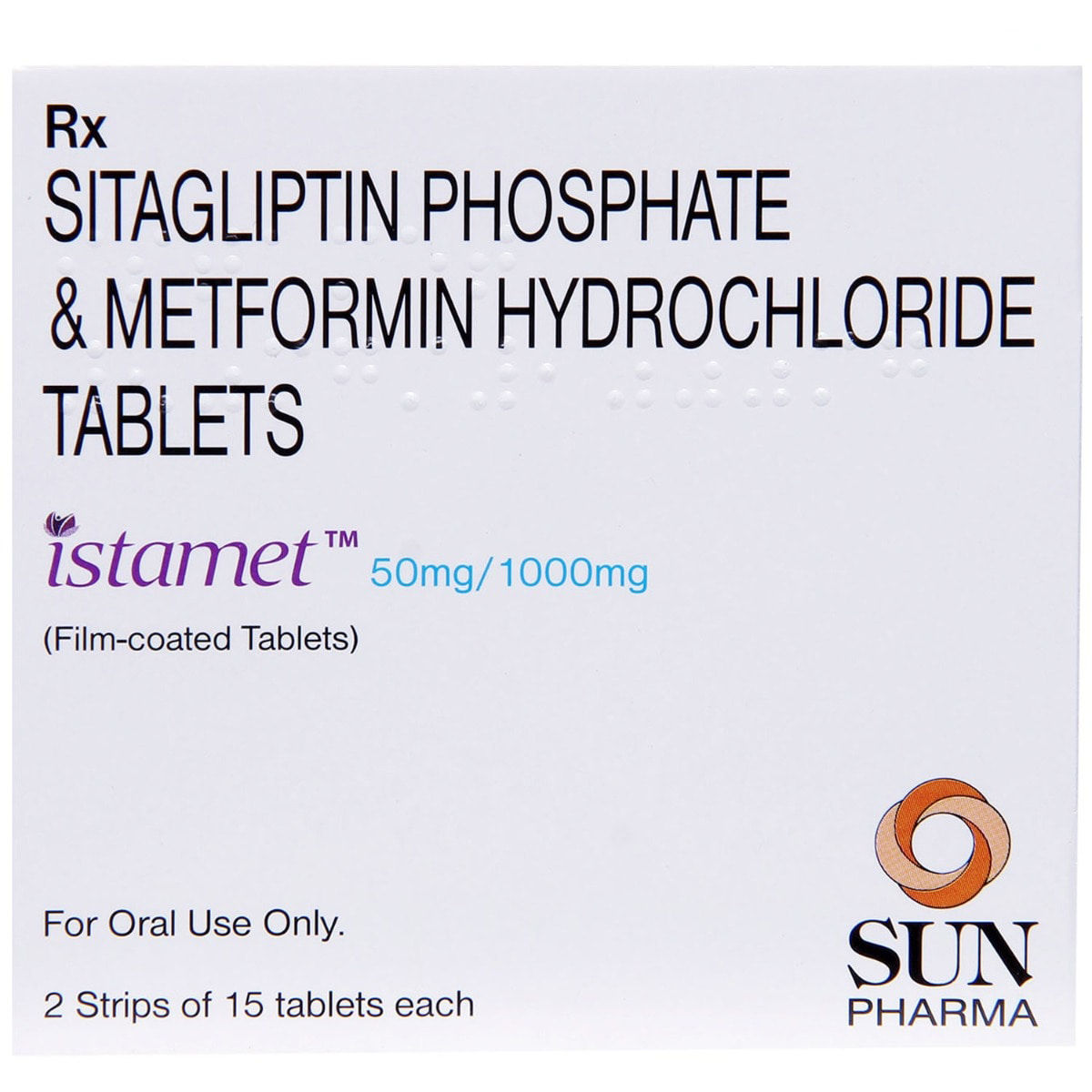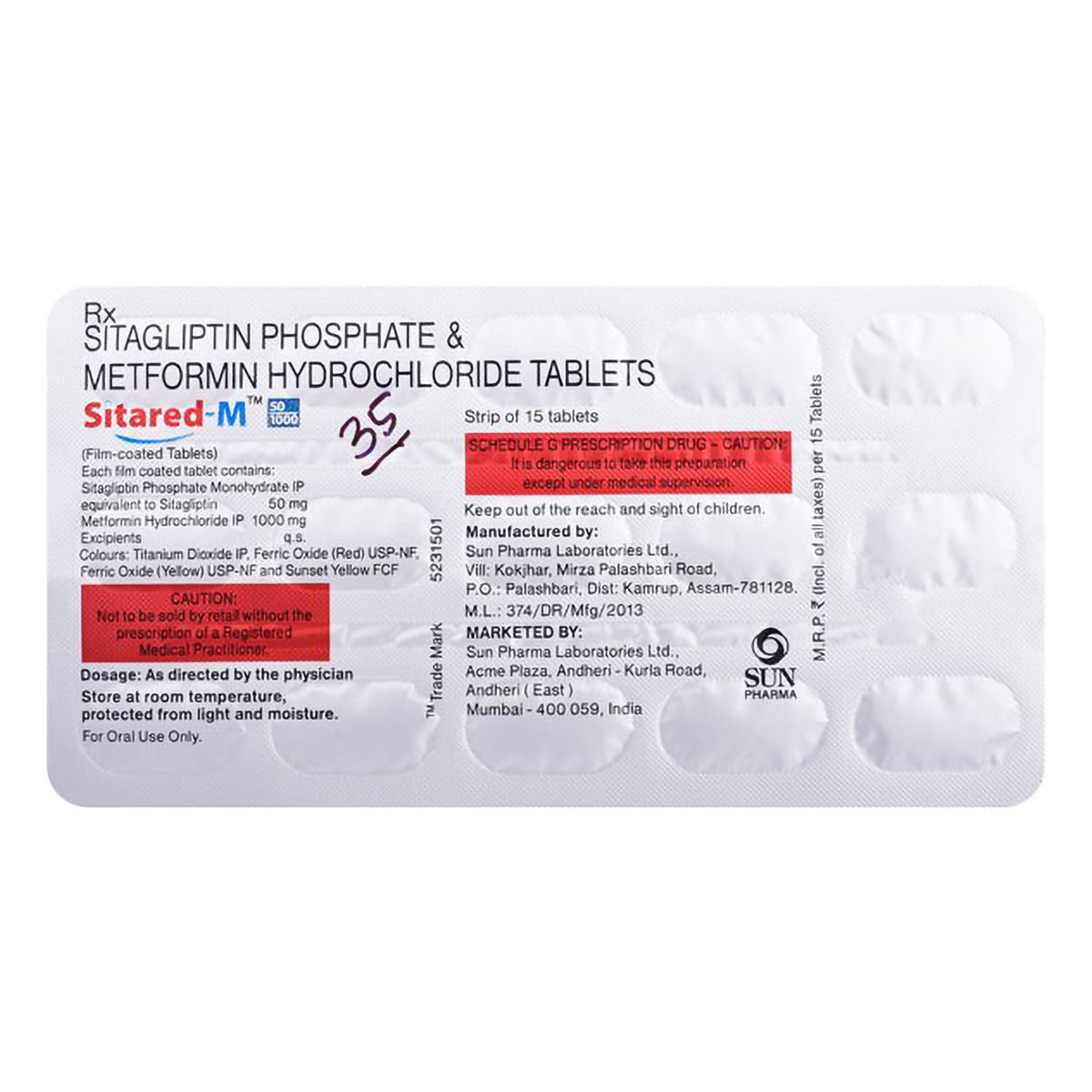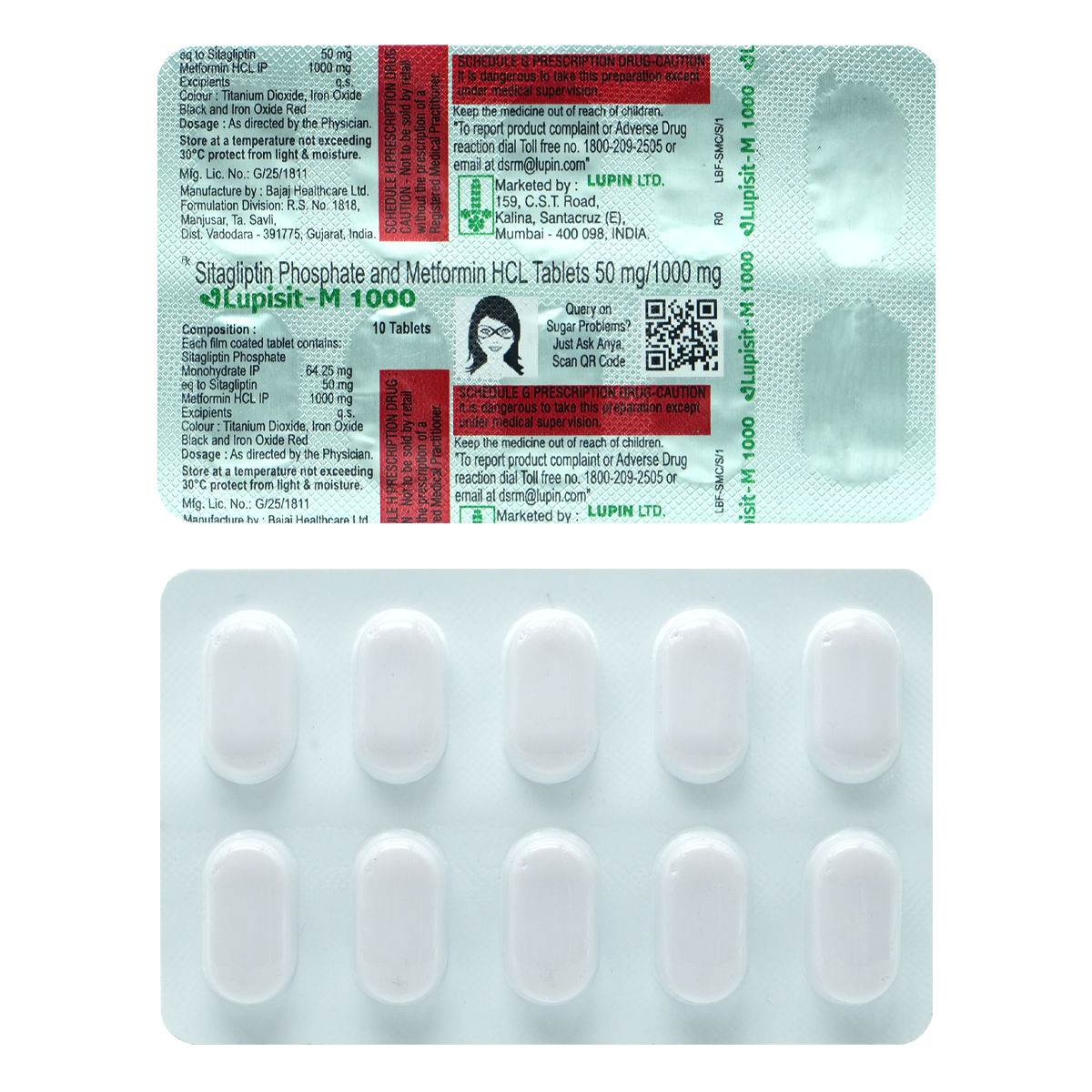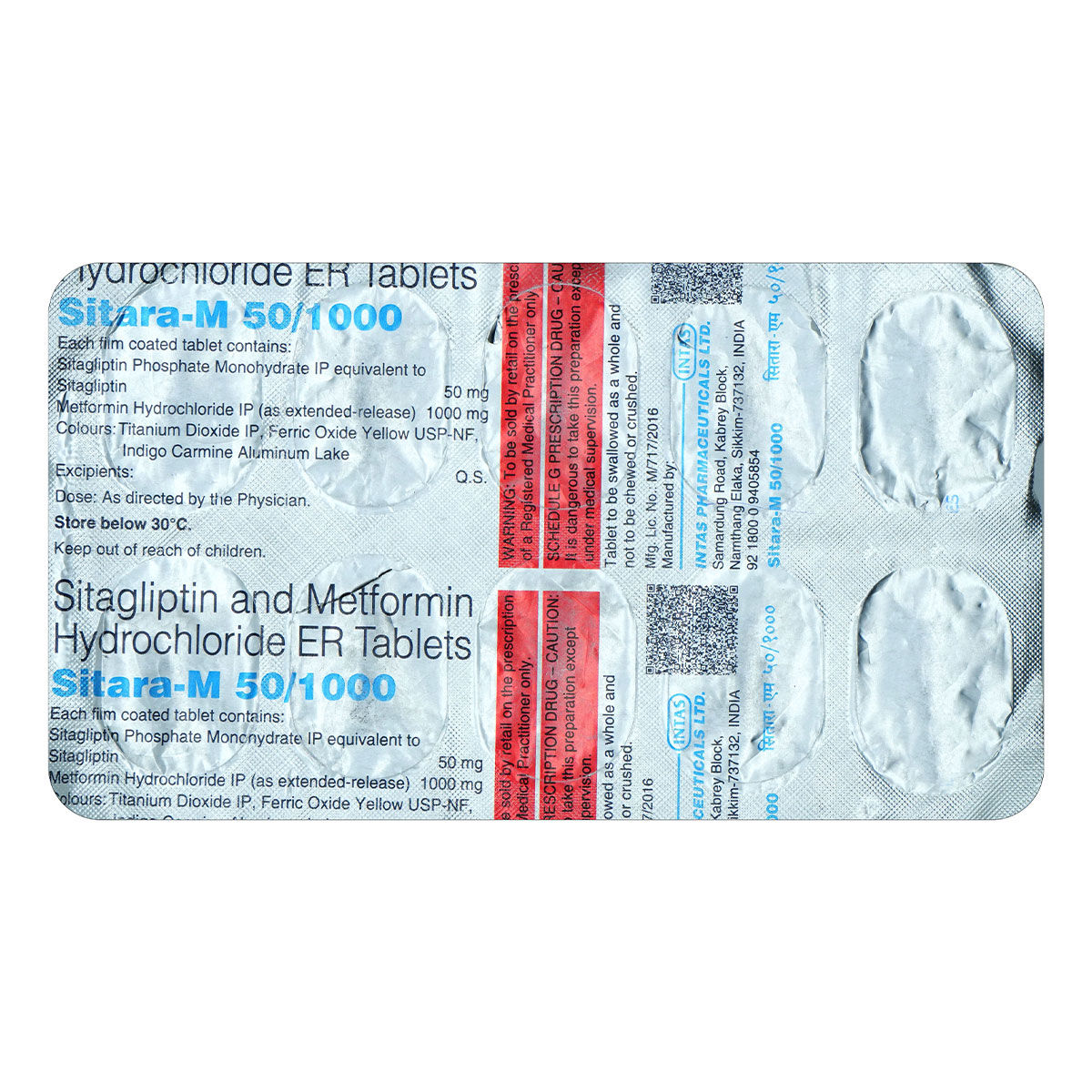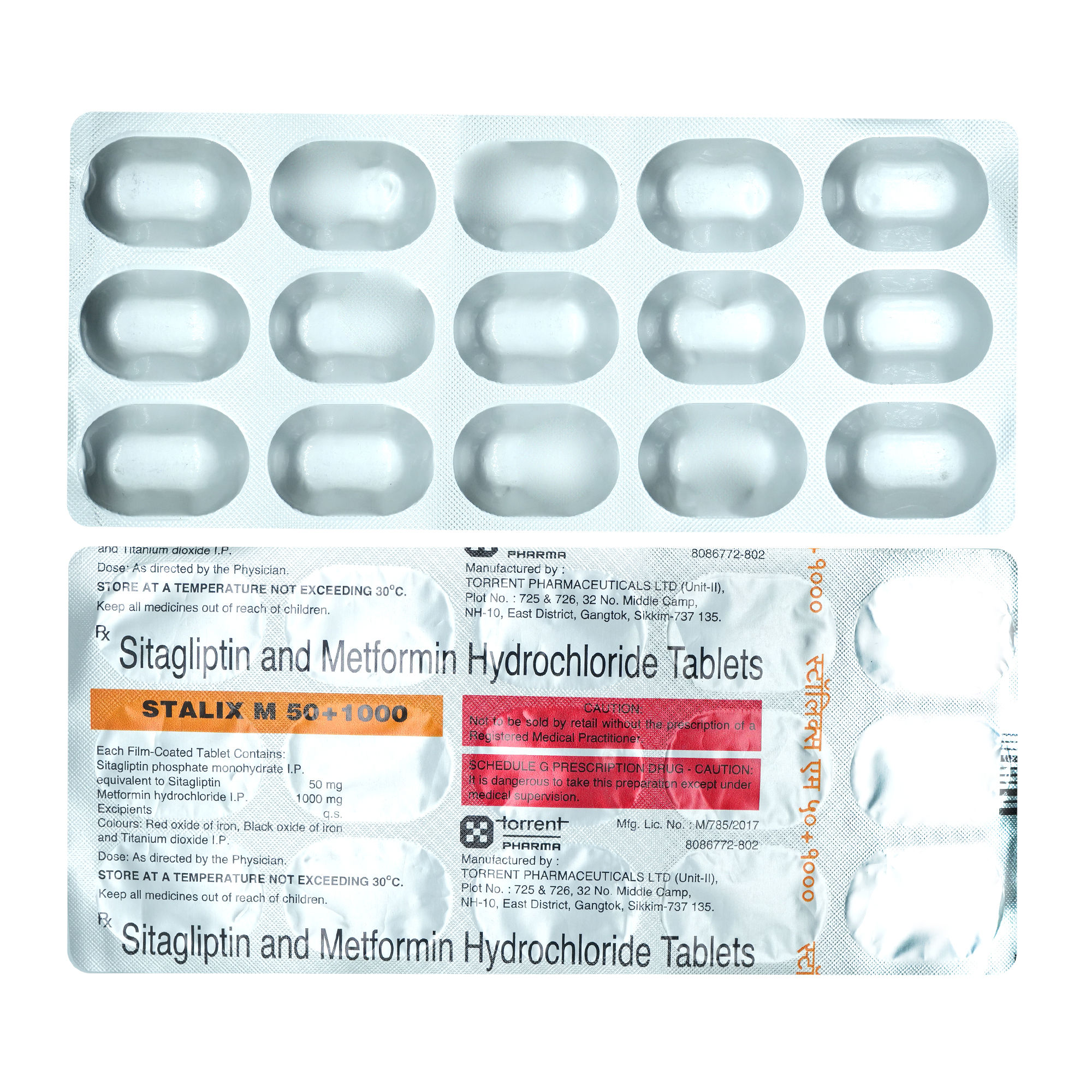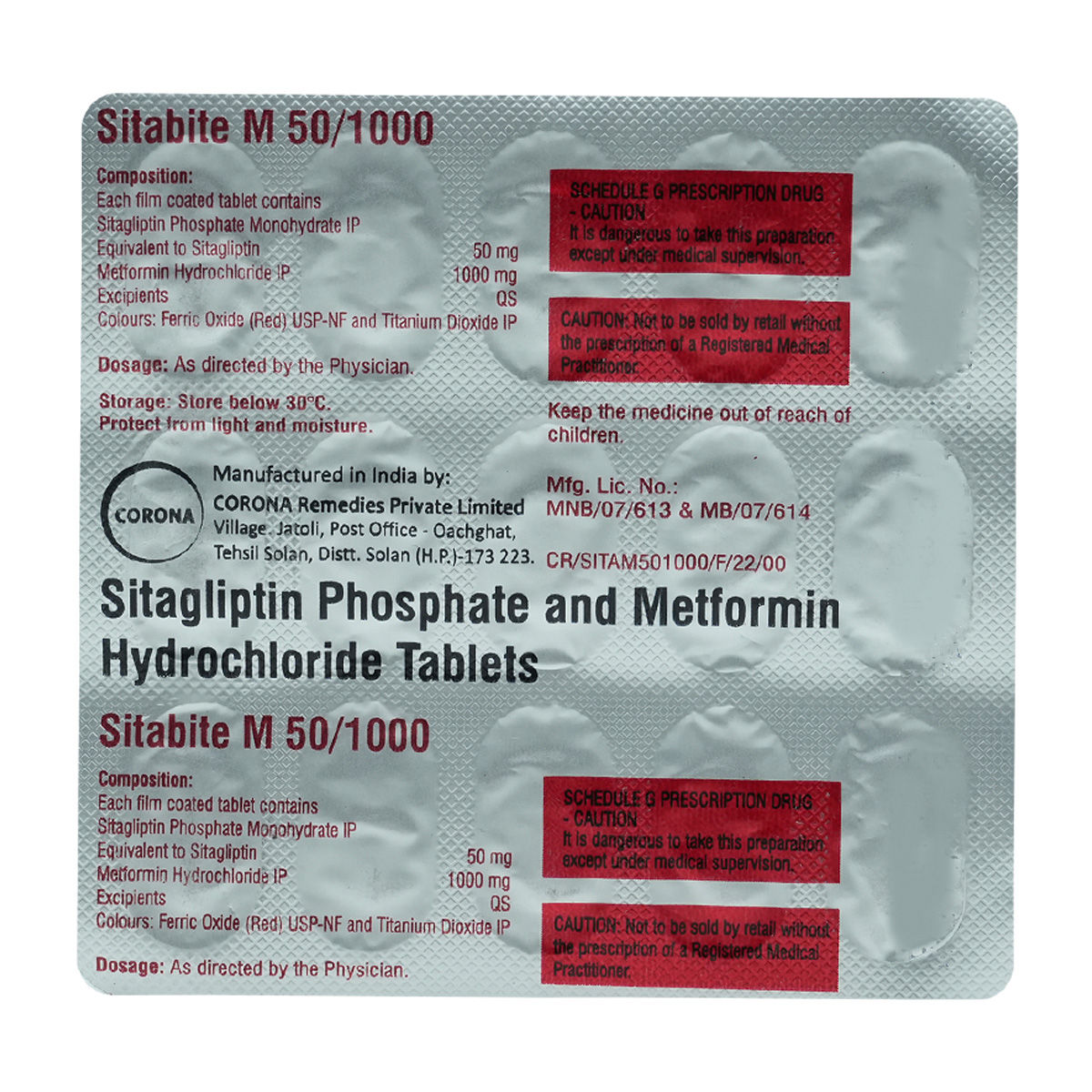Qsita M SR Tablet 10's
Qsita M SR Tablet is used to treat Type 2 diabetes. It contains Sitagliptin and Metformin, which work by increasing the amounts of certain natural substances that lower blood sugar when it is high. Also, it lowers glucose production in the liver, delays glucose absorption from the intestines, and increases the body's sensitivity to insulin. Thus, it controls blood glucose levels from rising to very high after meals. The most common side effect is hypoglycemia (low blood glucose levels), characterised by dizziness, sweating, palpitations, hunger pangs, dry mouth and skin etc. So, to avoid hypoglycemia, you should not miss meals and should also carry some form of sugar with you. Other side effects include taste change, nausea, diarrhoea, stomach pain, headache, and upper respiratory symptoms.
₹90*
MRP ₹100
10% off
₹85*
MRP ₹100
15% CB
₹15 cashback(15%)
Free Delivery
With Circle membership
(Inclusive of all Taxes)
This offer price is valid on orders above ₹800. Apply coupon PHARMA10/PHARMA18 (excluding restricted items)
Know Your Delivery Time
Provide Delivery Location



Whats That

Secure Payment

India's Most Trusted Pharmacy

Genuine Products
Composition :
Manufacturer/Marketer :
Consume Type :
Return Policy :
Expires on or after :
About Qsita M SR Tablet
Qsita M SR Tablet is a combination drug of Sitagliptin (DPP4 inhibitors) and Metformin (Biguanides), belonging to the class of anti-diabetic agents used to treat type II diabetes. Type 2 diabetes is a condition in which either the body stops producing enough insulin (the hormone which helps to decrease sugar levels in the blood), or there is resistance to the action of insulin. As a result, insulin is produced in large amounts, but it cannot act on the body's organs.
Sitagliptin belongs to the class of dipeptidyl peptidase-4 (DPP-4) inhibitors that work by increasing the amounts of certain natural substances that lower blood sugar when it is high. Another medicine, Metformin, belongs to the class of biguanides that lower glucose production in the liver, delay glucose absorption from the intestines, and increase the body's sensitivity to insulin. Thus, Qsita M SR Tablet controls blood glucose levels from rising to very high levels after meals.
Qsita M SR Tablet should be taken with food to avoid an upset stomach. Qsita M SR Tablet should be taken at the same time of the day each time for best results. For better advice, your doctor will decide what dose should be taken, and it can change in time depending on your condition. The most common side effect of Qsita M SR Tablet is hypoglycemia (low blood glucose levels), characterised by dizziness, sweating, palpitations, hunger pangs, dry mouth and skin etc. So, to avoid hypoglycemia, you should not miss meals and should also carry some form of sugar with you. Other side effects include taste change, nausea, diarrhoea, stomach pain, headache, and upper respiratory symptoms.
Qsita M SR Tablet should not be stopped even if you feel better, without consulting the doctor as your sugar level keeps changing. If you stop taking Qsita M SR Tablet abruptly, it may increase your sugar levels, which could further increase the risk of eyesight loss (retinopathy), kidney (nephropathy) and nerve damage (neuropathy). Qsita M SR Tablet should not be taken if you have type 1 diabetes mellitus or severe kidney or liver disease. Please inform your doctor if you have any type of heart disease, are planning to get pregnant or are breastfeeding.
Uses of Qsita M SR Tablet
Medicinal Benefits
Qsita M SR Tablet helps the pancreas produce more insulin, effectively utilise insulin, and decrease the excess sugar the liver makes. It helps control the rise of blood sugar levels after a meal. Besides this, it does not cause weight gain in prolonged use. Qsita M SR Tablet plays a vital role in controlling blood sugar levels. It prevents serious complications of diabetes like eyesight loss (retinopathy), kidney (nephropathy), nerve damage (neuropathy), diabetic foot ulcer and delayed wound healing.
Side Effects of Qsita M SR Tablet
- Low blood sugar
- Runny nose
- Sore throat
- Upper lung infection
- Diarrhoea
- Nausea
- Vomiting
- Gas
- Stomach upset
- Indigestion
- General weakness
- Headache
Directions for Use
Storage
Drug Warnings
Qsita M SR Tablet should not be used in patients with type 1 diabetes or with diabetic ketoacidosis. Some diabetic patients, while taking Qsita M SR Tablet , might develop a rare but serious condition called lactic acidosis. In this condition, too much lactic acid accumulates in the blood, which can damage the workings of your liver and kidneys, which are required to eliminate excess lactic acid from the blood. Before you start taking Qsita M SR Tablet , tell your doctor if you’ve ever had pancreatitis (inflammation of the pancreas), kidney disease, and low vitamin B12 levels. Qsita M SR Tablet , when used with insulin, Qsita M SR Tablet may lower the blood sugar level, leading to hypoglycaemia, which can be fatal. In this case, your doctor may adjust the dose by lowering the insulin dose or Qsita M SR Tablet . Prolonged intake of Qsita M SR Tablet may lower your thyroid-stimulating hormone (TSH); hence, an annual check-up of TSH is recommended. In rare cases, you may also develop a serious skin reaction known as bullous pemphigoid that requires immediate medical attention. Tell your doctor if you will have a diagnostic test with an injection of dye or X-ray contrast agent. You should stop using Qsita M SR Tablet briefly before an X-ray procedure.
Therapeutic Class
Drug-Drug Interactions
Drug-Food Interactions
Diet & Lifestyle Advise
- Include starchy veggies, proteins, and whole grains in your diet.
- Eat at regular intervals. Do not take a long gap between a meal or snack.
- Monitor your blood sugar level regularly.
- If you feel that your blood sugar level is going down and you are feeling weak, immediately eat sugar candies or drink sugary beverages. It will help to balance the blood sugar level in your body. So, it is advisable to keep sugar candies with you.
- Invest in at least 150 min of moderate-intensity physical activity or one hour and 15 minutes of high-intensity exercise every week.
- Lose weight gradually to achieve a healthy body mass index (18.5 to 24.9).
- Replace refined carbohydrate-containing foods with whole grain foods and increase the intake of fruits, veggies, and other fibre-enriched foods.
- Reduce intake of saturated fat (or hidden fats) in food like chips, crisps, pastries, biscuits, and samosas. Choose omega-3 fatty acid-containing oils for daily cooking. For frying, you can use palm oil, mustard oil, groundnut oil, rice bran oil, and safflower oil.
- Do not take stress as it may elevate your blood sugar level. You can adopt stress management techniques like mindfulness to control stress-related blood sugar changes.
- Opt for low-fat dairy products (low-fat yoghurt, fat-free milk, cheese, etc.).
- Keep your blood pressure as normal (140/90) as possible. As it reduces the risk of cardiovascular diseases in diabetes patients.
Habit Forming
How Qsita M SR Tablet Works
What if I have taken an overdose of Qsita M SR Tablet
Alcohol
Caution
Avoid consumption of alcohol while on treatment with Qsita M SR Tablet .
Pregnancy
Caution
Qsita M SR Tablet is only recommended during pregnancy when the benefit outweighs the risk. Please consult your doctor before starting Qsita M SR Tablet if you are pregnant or planning to conceive.
Breast Feeding
Caution
Consult your doctor; Qsita M SR Tablet should be used in breastfeeding mothers only if the benefits outweigh the risks.
Driving
Caution
Drive only if you are physically stable and mentally focussed, If you experience drowsiness after taking these medications you should not drive or operate any machinery or vehicles.
Liver
Caution
If you have or have a history or evidence of any liver-related diseases, please consult the doctor before taking medicine.
Kidney
Caution
If you have or had a history or evidence of any kidney-related diseases, please consult the doctor before taking medicine.
Children
Caution
It is advisable to consult a doctor before using it.
Country of origin
Manufacturer/Marketer address
Author Details
We provide you with authentic, trustworthy and relevant information
FAQs
Disclaimer
Product Substitutes






